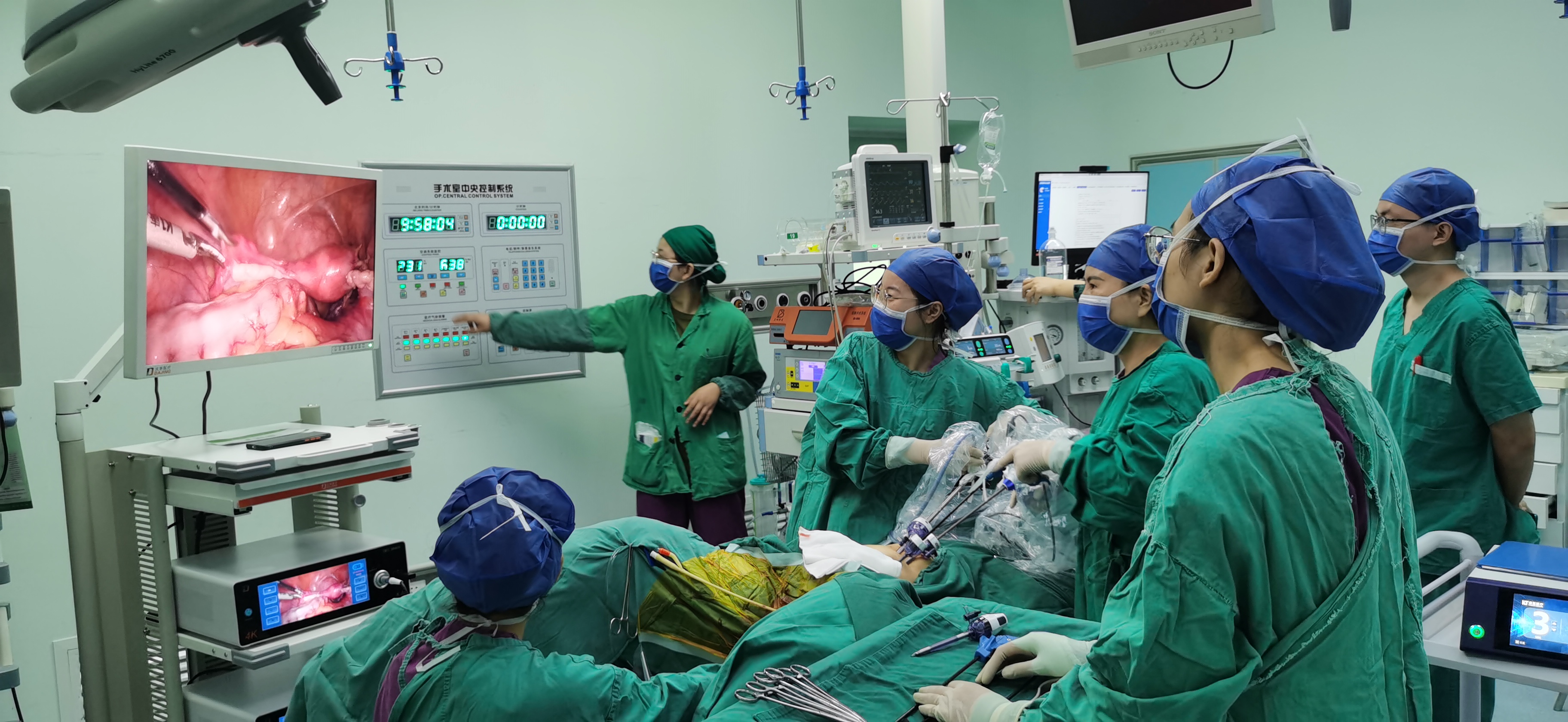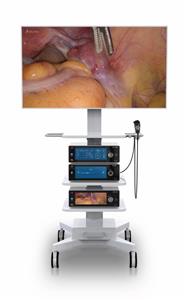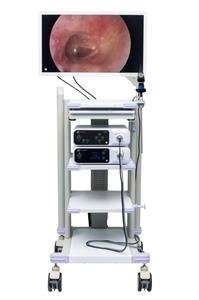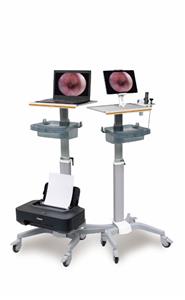Clinical efficacy of laparoscopic surgery in the treatment of endometrial cancer and its influence on the prognosis of patients
According to different surgical methods, 148 patients with endometrial cancer were divided into laparotomy group and minimally invasive group, with 74 cases in each group. Patients in the laparotomy group received laparotomy, and patients in the minimally invasive group received laparoscopic surgery. The perioperative indicators, inflammatory response indicators [serum C-reactive protein (CRP), tumor necrosis factor-α (TNF-α), interleukin-6 (IL-6)], nutritional status indicators [ Serum total protein (TP), albumin (ALB), prealbumin (PAB)], survival [progression-free survival (PFS), overall survival (OS)] and complications. Results There was no case of conversion to laparotomy in the minimally invasive group. There was no significant difference in the number of lymph nodes dissected between the two groups (P>0.05); the operation time, postoperative first exhaust time, postoperative first time to get out of bed, catheterization time, and hospital stay in the minimally invasive group were all significantly higher than those in the minimally invasive group. The blood loss during operation was significantly less than that of the laparotomy group, and the differences were statistically significant (P﹤0.01). After operation, the levels of serum CRP, TNF-α, and IL-6 in the two groups were higher than those before operation in the same group, and the levels of serum CRP, TNF-α, and IL-6 in the minimally invasive group were lower than those in the laparotomy group. Both were statistically significant (P﹤0.05). After operation, the serum TP, ALB, and PAB levels of the two groups were lower than those of the same group before operation, and the serum TP, ALB, and PAB levels of the patients in the minimally invasive group were higher than those in the laparotomy group, and the differences were statistically significant (P﹤ 0.05). There was no significant difference in PFS and OS between the two groups (P﹥0.05). The total incidence of postoperative complications in the minimally invasive group was lower than that in the laparotomy group, and the difference was statistically significant (P﹤0.05). Conclusion Laparoscopic surgery for endometrial cancer can achieve the same effect of lymph node dissection and prognosis as laparotomy, but laparoscopic surgery has less intraoperative blood loss, higher surgical safety, and milder postoperative inflammatory reactions. Nutritional status is better.





